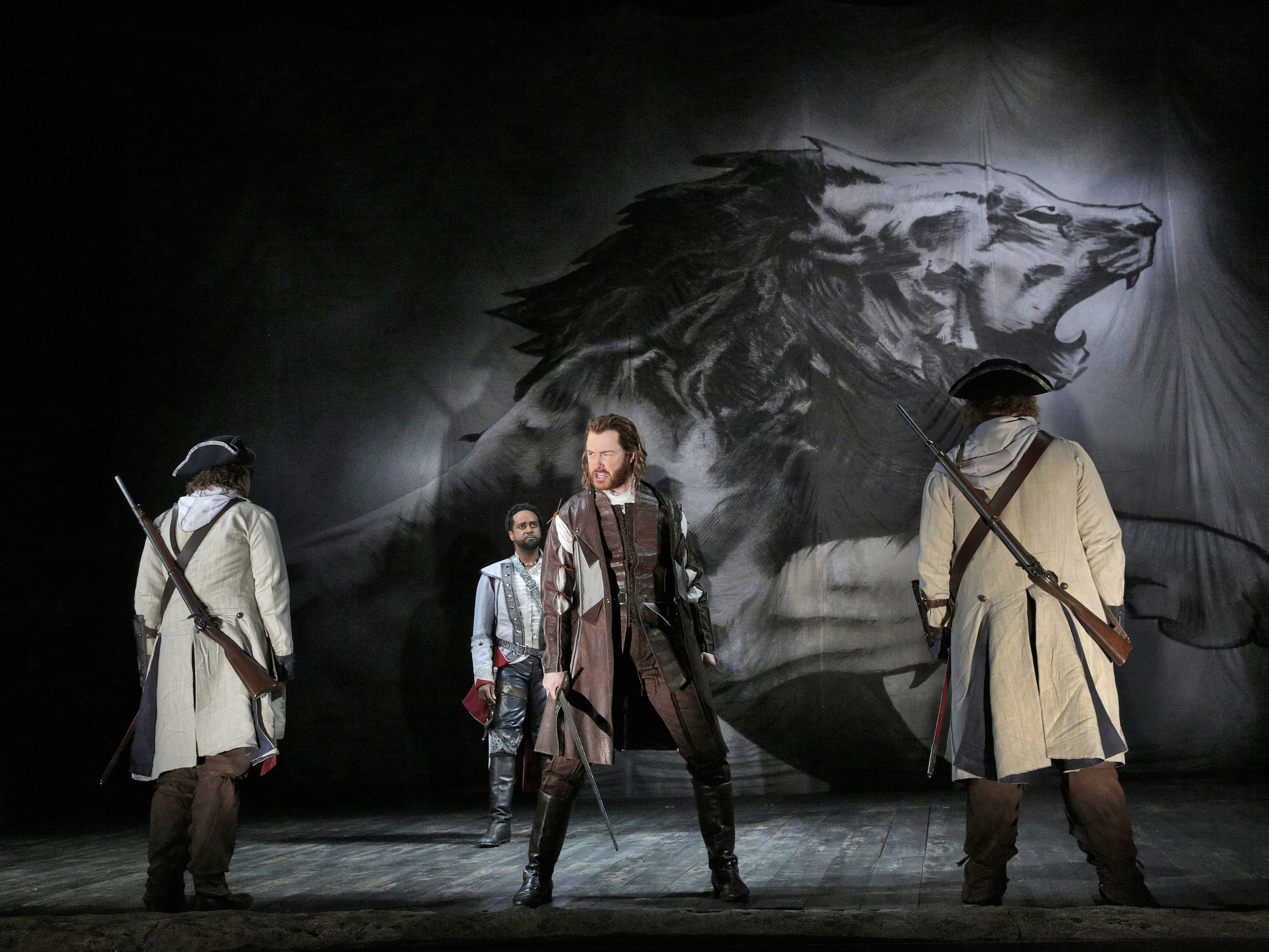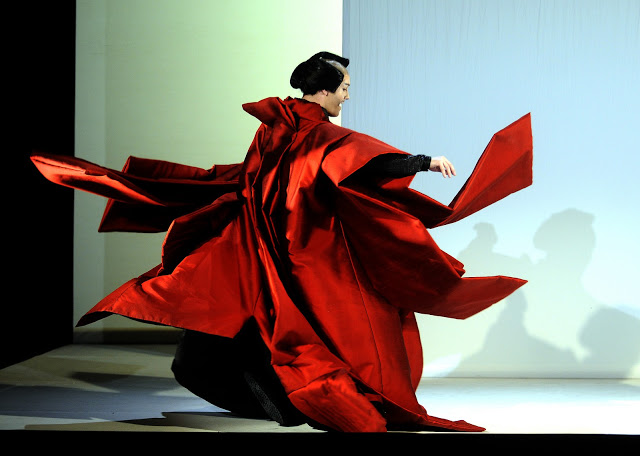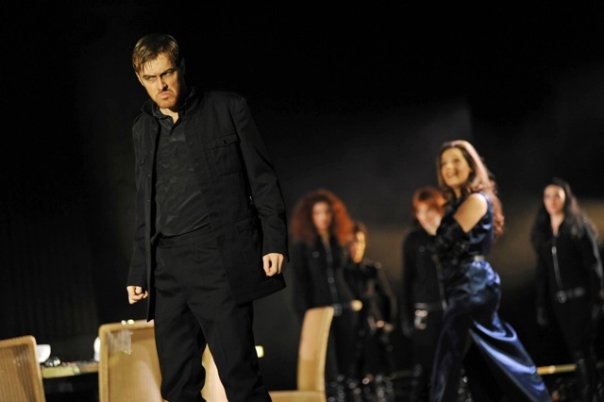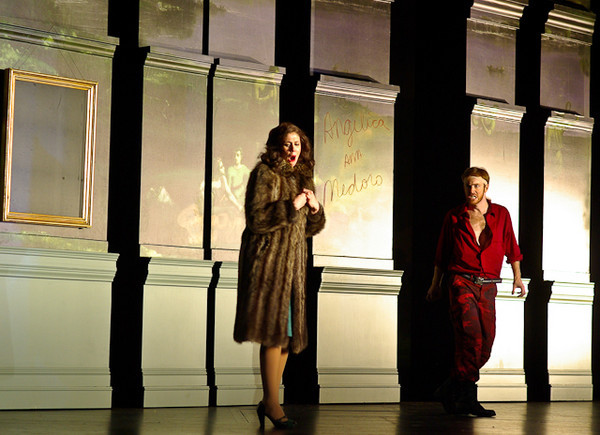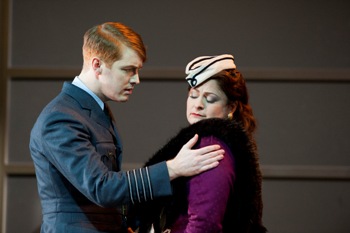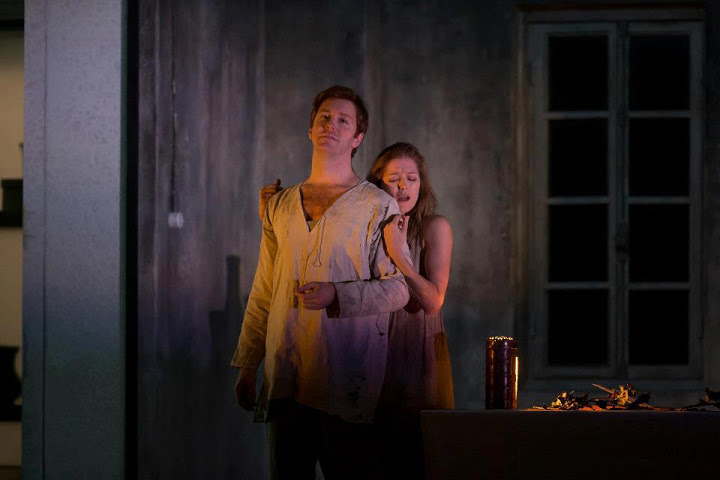Tim talks Handel with Intermusica
/Intermusica caught up with Tim to ask about the many Handel roles he has sung and find out which ones are next on the horizon. Tim is currently singing the role of Goffredo in Rinaldo at Glyndebourne.
What was the first Handel role you sang professionally?
I think it was the role of David in Saul at Opera North in 2005 in a semi-staging by John Fulljames, alongside now familiar Handelians Lucy Crowe and Christian Curnyn, with whom I have since happily collaborated on a number of Handel operas. Before that I’d been well-served by student productions singing Melo in Sosarme, the title role in Ezio for the London Handel Festival, Athamas in Semele for British Youth Opera, and I had a stab at the title role in Cesarein a plucky undergraduate production during my time at Cambridge University.
What is your favourite Handel role and aria to sing and why?
Handel wrote some of his greatest roles for the alto voice, so I’m spoilt for choice! I’ve always been drawn to characters who express quiet, thoughtful and loving personalities alongside more traditional heroic qualities. It’s difficult to pick just one role, but a few definitely top the list. Cesare was the first Handel role I ever attempted and it remains a firm favourite. The whole opera is packed with great arias and Cesare has some truly stand out moments, such as ‘Aure, deh per pieta’ and ‘Va tacito’. His character is a great mix of fierce warrior, noble commander and lover, as well as a little humour.
Agrippina is possibly my favourite Handel opera and the role of Ottone is incredibly rewarding to sing. In an opera that is full of slightly ridiculous characters, Ottone stands as the noble heart of the piece and his lament ‘Voi che udite’ is truly heartbreaking.
I think that Handel’s greatest work is Theodora. It seems to me to be Handel at his musical and dramatic best, even in the context of an oratorio. The role of Didymus is achingly beautiful and the first time I performed the final duet (with Rosemary Joshua and The English Concert) is a moment I’ll not forget. It is astonishingly powerful music.
Having said all that, the aria I’ve most enjoyed performing recently is the triumphant final aria from Bertarido in Rodelinda, ‘Vivi tiranno'. His coloratura flourishes become statements of power, control and authority in that remarkably effortless way that Handel does so well. I’ve been enjoying pushing the limits of the speed at which these barrages of semi-quavers (even more numerous with ornamentation!) can sound effectively. This is normally a negotiation with the oboist who is also charged with this feat. I’m fortunate to have had some very obliging and talented colleagues!
How has your interpretation of roles such as Goffredo in Rinaldo, which you’re currently singing at Glyndebourne, changed since you first performed them?
One of the disadvantages of having performed so many different Handel roles over the course of my career is that I’ve not been able to repeat roles as often as I would have liked. An interpretation should always grow with repetition, but I tend not to consciously set this as an aim. A role will naturally evolve in the context of a new production, where differing thoughts on character or situation will affect the way the music is approached. There is also a broad church in the field of baroque style at the present time, so the preferences of the conductor can have a huge influence on how the characters are formed and express themselves.
With Goffredo at Glyndebourne, I’ve had a six-year break from the production leading up to this revival. The main difference in my approach is that I now bring six years more performing (and life) experience and also have a different set of colleagues to interact with on stage. This has mainly manifested itself in the way Goffredo carries himself and delivers his recitative. In the Christian army of this production, Goffredo is the only adult, cast in the role of a teacher commanding his schoolboy soldiers. In the eyes of his charges, Goffredo is always in command, always has an answer and is always right! Even in the most extreme circumstances, nothing is rushed and there is never any doubt as to this character’s strength or control. It’s this sense of authority that I feel has really grown in the intervening years. I think that is a quality that will inevitably develop the longer one spends with a character and their words.
How does your approach to performing a Handel role in concert, such as the upcomingJephtha performance at the Proms, differ from performing in a staged production?
I hope that my approach doesn’t change all that much between the two modes of performance. It can be tempting to focus solely on musical concerns in the concert environment and be seduced by pure vocalism. The communication of the drama through music should, however, always be the primary concern, whether you’re in a theatre or not. Handel’s text may be repetitive, but that really is a gift for exploring ways of expressing the thought processes of the character. I sang Hamor in Claus Guth’s staging of Jephtha at Paris Opera last season and I’m sure I’ll bring much of what I learnt about the character to the concert performance at this year’s Proms.
Which Handel roles are you hoping to perform in the future?
I think I’ve performed over 20 Handel roles, but there are still many more to explore and I’ll be adding Dardano in Amadigi to my roles in the coming seasons. There are still a couple of ‘repertoire’ Handel roles that I need to add to my list, such as Arsamene in Xerxes and Polinesso in Ariodante. I’m keen to be in more new productions so I can be involved in the creative process with some of my favourite roles. A new Cesare would be a dream, as would a staged Theodora.
Glyndebourne's Rinaldo runs until 25 August. Find out more here.
Photo: Robbie Jack


